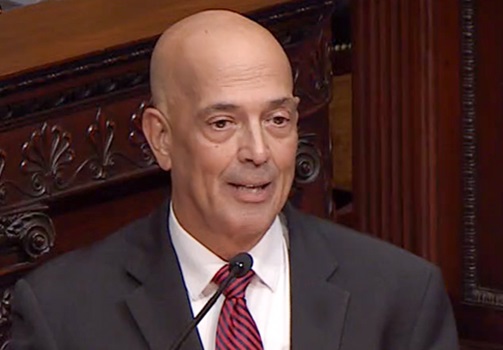latest
Massachusetts bill will establish penalties for those who intentionally impede, interfere, threaten, or harass first responders; detractors have First Amendment concerns

Boston, MA – State Representative Steven Xiarhos (R-West Barnstable) has announced that House Bill 2057, “An Act Ensuring the Safety and Dignity of First Responders” (HALO Act), has been assigned to the Joint Committee on Public Safety and Homeland Security for a hearing in the near future.
Filed in partnership with State Representative Richard Wells (D-Milton), H.2057 aims to establish clear penalties for those who intentionally impede, interfere with, threaten, or harass first responders while they perform their duties. The bill allows police officers, firefighters, and EMTs to issue a verbal warning to create a 25-foot buffer zone, ensuring they can carry out their life-saving work without undue interference or abuse. Persons who then refuse to honor that warned protective zone around the first responder would be subject to a fine of up to $1,000 for the first offense, or a fine of up to $5,000 and jail time up to a year for second and subsequent offenses.
“This is about protecting those who put their lives on the line for us every day. No first responder should be distracted, obstructed, or subjected to verbal abuse while trying to save lives,” said Representative Xiarhos. “This bill is common sense. It strikes a balance between public transparency and ensuring our police officers, firefighters, and EMTs can do their jobs without unnecessary interference. Massachusetts should be proud of how we treat our first responders, and the HALO Act reinforces that commitment.”
The HALO Act has received strong support from law enforcement agencies, firefighter associations, and emergency medical professionals across the Commonwealth.
The legislation is patterned after a similar measure signed into law in Florida and is meant to address serious cases of harassment and physical harm posed to first responders in the performance of their official duties.
According to the Boston Globe, First Amendment advocates believe the bill goes too far and “would make it substantially more difficult for the media and others to record police, which, in some instances, has provided crucial evidence of misconduct.”






